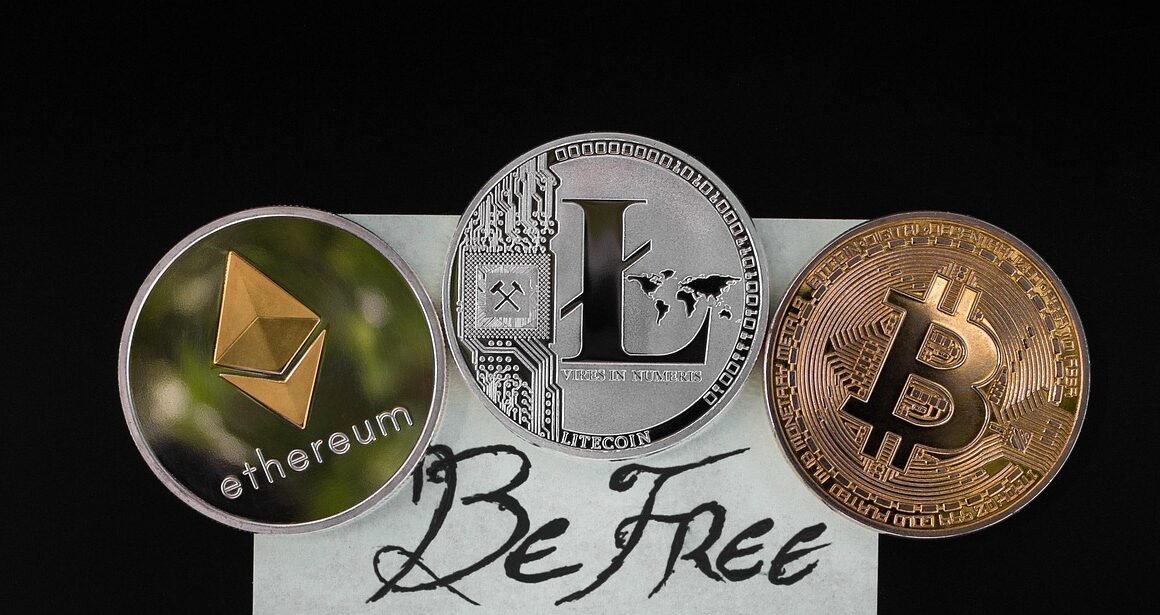Navigating the world of digital assets and traditional securities can be daunting, especially when trying to understand where and how to buy, sell, or trade them. Exchanges, whether for cryptocurrencies, stocks, or foreign currencies, are the central marketplaces that facilitate these transactions. This guide will provide a comprehensive overview of different types of exchanges, their functions, and key considerations for users.
Understanding Exchanges: The Core Function
Exchanges serve as the backbone of financial markets. They provide a centralized platform where buyers and sellers can connect and execute trades. This standardization and regulation contribute to market efficiency and liquidity.
What is an Exchange?
An exchange is a marketplace where securities, commodities, derivatives, and other financial instruments are traded. They match buy and sell orders based on specific rules and regulations. The primary goal of an exchange is to provide a fair, transparent, and efficient platform for price discovery and trade execution.
- Matching Buyers and Sellers: Exchanges use order books to match buy and sell orders.
- Price Discovery: The interaction of supply and demand on the exchange determines the prices of assets.
- Liquidity: Exchanges aim to provide sufficient liquidity, enabling traders to easily buy and sell assets without significantly impacting the price.
- Regulation: Exchanges are often subject to regulatory oversight to ensure fair trading practices and protect investors.
Types of Exchanges
Exchanges are not monolithic entities; they come in various forms, each catering to specific asset classes and user needs.
- Stock Exchanges: These facilitate the trading of stocks, bonds, and other equity-based securities. Examples include the New York Stock Exchange (NYSE) and Nasdaq.
- Commodity Exchanges: These focus on trading raw materials such as gold, oil, and agricultural products. Examples include the Chicago Mercantile Exchange (CME) and the London Metal Exchange (LME).
- Foreign Exchange (Forex) Markets: These facilitate the trading of currencies. The Forex market is decentralized and operates globally.
- Cryptocurrency Exchanges: These specialize in the trading of cryptocurrencies such as Bitcoin and Ethereum. Examples include Coinbase, Binance, and Kraken.
Cryptocurrency Exchanges: A Deep Dive
Cryptocurrency exchanges have revolutionized the financial landscape, offering a new avenue for trading digital assets. However, they also come with their own unique set of considerations.
Centralized vs. Decentralized Exchanges (CEX vs. DEX)
The landscape of cryptocurrency exchanges is divided into two major categories: centralized exchanges (CEXs) and decentralized exchanges (DEXs).
- Centralized Exchanges (CEXs): These exchanges are operated by a central authority that manages the trading platform and holds users’ funds. Examples include Binance, Coinbase, and Kraken.
Pros:
Higher liquidity compared to DEXs.
User-friendly interface, often easier to navigate for beginners.
Offer a wider range of features, such as margin trading and staking.
Cons:
Require users to trust the exchange with their funds.
Vulnerable to hacking and security breaches.
Subject to regulatory scrutiny and potential restrictions.
- Decentralized Exchanges (DEXs): These exchanges operate on a decentralized network, allowing users to trade directly with each other using smart contracts. Examples include Uniswap, SushiSwap, and PancakeSwap.
Pros:
Users retain control of their funds.
Higher level of privacy compared to CEXs.
Resistant to censorship and single points of failure.
Cons:
Lower liquidity compared to CEXs.
More complex to use, requiring familiarity with blockchain technology.
Subject to higher transaction fees due to gas costs on blockchain networks.
Key Features to Consider When Choosing a Crypto Exchange
Selecting the right cryptocurrency exchange requires careful consideration of several factors:
- Security: Look for exchanges with robust security measures such as two-factor authentication (2FA), cold storage of funds, and regular security audits.
- Liquidity: High liquidity ensures that you can easily buy and sell cryptocurrencies without significant price slippage.
- Fees: Compare trading fees, withdrawal fees, and deposit fees across different exchanges.
- Supported Cryptocurrencies: Ensure that the exchange supports the cryptocurrencies you want to trade.
- User Interface: Choose an exchange with a user-friendly interface that is easy to navigate, especially if you are a beginner.
- Customer Support: Look for exchanges with responsive and helpful customer support channels.
- Regulation: Consider exchanges that comply with relevant regulations in your jurisdiction.
- Example: A beginner looking to buy Bitcoin might choose Coinbase due to its user-friendly interface and strong security reputation. An experienced trader looking for lower fees and more advanced features might opt for Binance. Someone seeking greater privacy might prefer a DEX like Uniswap.
Traditional Exchanges: Stocks, Bonds, and More
While cryptocurrency exchanges have captured recent attention, traditional exchanges remain crucial for trading stocks, bonds, and other conventional financial instruments.
Stock Exchanges: Facilitating Equity Trading
Stock exchanges provide a centralized platform for buying and selling shares of publicly traded companies.
- New York Stock Exchange (NYSE): One of the world’s largest stock exchanges, known for its iconic trading floor.
- Nasdaq: A global electronic marketplace for buying and selling securities, particularly technology stocks.
- Example: An investor wanting to buy shares of Apple (AAPL) would place an order through a brokerage account, which then executes the trade on the Nasdaq exchange.
Bond Markets: Trading Fixed-Income Securities
Bond markets facilitate the trading of debt securities issued by governments, corporations, and other entities.
- Treasury Bond Market: Where U.S. Treasury bonds are traded.
- Corporate Bond Market: Where bonds issued by corporations are traded.
- Example: A company issuing bonds to raise capital would list them on a bond exchange, allowing investors to purchase them.
Forex Exchanges: Navigating Currency Markets
The Forex market is a decentralized global marketplace where currencies are traded. It is the largest and most liquid financial market in the world.
Key Characteristics of Forex Exchanges
- Decentralized: No central exchange; trading occurs directly between buyers and sellers.
- Global: Operates 24 hours a day, five days a week, across different time zones.
- High Liquidity: Enormous trading volumes ensure that currencies can be easily bought and sold.
- Leverage: Forex brokers offer leverage, allowing traders to control larger positions with a smaller amount of capital.
- Example: A trader believes the Euro will appreciate against the US Dollar. They would open a long (buy) position on the EUR/USD currency pair through a Forex broker.
Choosing the Right Exchange: Key Considerations
Selecting the appropriate exchange depends heavily on your specific needs and goals.
Assessing Your Needs
Before choosing an exchange, consider the following:
- Asset Class: Are you interested in trading stocks, cryptocurrencies, commodities, or currencies?
- Trading Style: Are you a day trader, swing trader, or long-term investor?
- Risk Tolerance: How much risk are you willing to take?
- Experience Level: Are you a beginner or an experienced trader?
Comparing Exchanges: A Checklist
Once you have assessed your needs, compare different exchanges based on the following criteria:
- Fees: Trading fees, withdrawal fees, deposit fees.
- Security: Security measures, regulatory compliance.
- Liquidity: Trading volume, order book depth.
- User Interface: Ease of use, functionality.
- Customer Support: Responsiveness, availability.
- Regulation: Compliance with relevant regulations in your jurisdiction.
- Actionable Takeaway:* Research and compare at least three different exchanges before making a decision. Read reviews, check security credentials, and compare fee structures.
Conclusion
Exchanges are essential for efficient and liquid markets across a wide range of asset classes. Whether you’re trading stocks, cryptocurrencies, or currencies, understanding the different types of exchanges and their characteristics is crucial for making informed decisions. By carefully assessing your needs and comparing different exchanges, you can find the platform that best suits your trading style and investment goals. Remember to prioritize security, liquidity, and regulatory compliance when making your choice.



